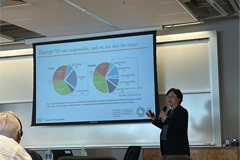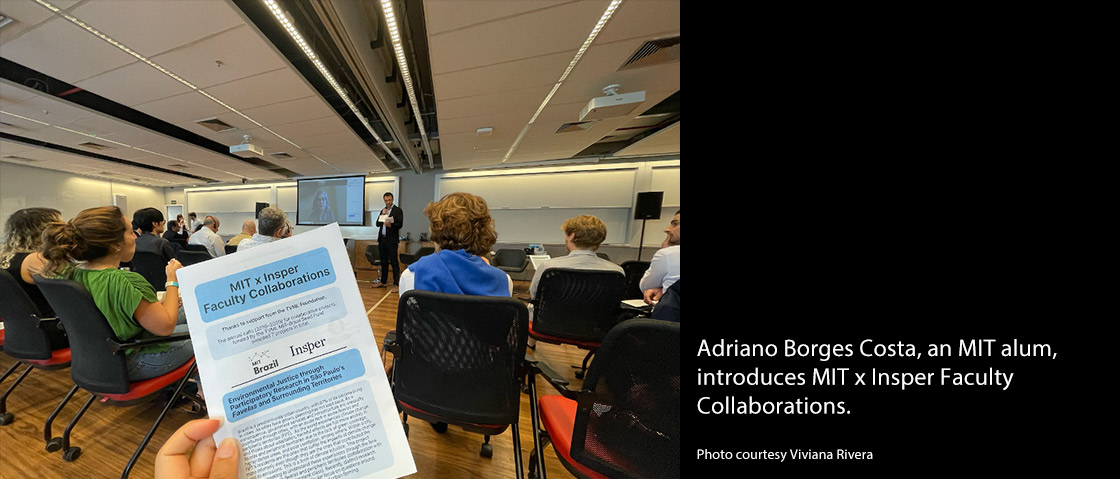Viviana Rivera, an MIT student completing an internship in São Paulo through MIT-Brazil program, attended the International Seminar on Climate Resiliency and Low-carbon Accessibility. The event was hosted by Insper College and featured a former winner of the MIT-Brazil Seed Fund. Read her experience below.

Distinguished speaker Professor Siqi Zheng (MIT) presenting "Sustainable real estate and cities: A framework."
On October 27, 2023, the Laboratorio Arq. Futuro de Cidades of Insper (São Paulo, SP) hosted a multidisciplinary workshop on sustainable, urban mobility where researchers, professors, and policymakers from across Brazil and the US all gathered to participate and exchange ideas.
To commence the event, Adriano Borges Costa, former MIT alum and current member of the Arq. Futuro Lab, highlighted the collaborations between MIT and Insper, including MIT-Brasil partnerships and the impact of the TVML fund on his journey towards becoming a professor at Insper.
Professor Siqi Zheng from MIT then started the climate resiliency discussion by introducing a framework on sustainable real estate and cities. This framework highlighted that for sustainable urban infrastructure there exists a triple bottom line: People, Planet, and Profit. All of these three aspects need to be aligned to implement change. This theme continued on throughout all of the different projects and initiatives discussed.
Multiple case studies were presented as “evidence talks”, where representatives of various universities explained research projects directly working on solving sustainability issues. Among these were a presentation on compact cities from ITDP and one on transit-oriented development from Universidad de Los Andes. Other case studies were presented by Insper, MIT, and POLI-USP.
To incorporate the public policy and industry perspective, two panels were conducted with representatives from MIT, Insper, GIZ, Arbrainc, Climate and Cities Working Group, IAB/SP, CCR, the São Paulo State Government, and the São Paulo City Hall. In these they discussed daily decisions such as taking a bike, a car, or public transport to work and transitioned to bigger topics like challenges in policy implementation.
As the climate imperative becomes more and more pressing, the importance of having these sustainability conversations is heightened. Both the vice president of academic affairs for Insper, Rodrigo R Soares, and Professor Zheng highlighted that in every new cohort, more and more students are choosing to pursue environmental or urban policy. This goes to show that there is a new generation that is excited and motivated to tackle this immeasurable challenge with not just innovative, but sustainable solutions. It is exciting to see efforts like this interdisciplinary workshop where it is evident that a lot of work is being put into reducing carbon emissions and strengthening urban resistance with forms of climate justice.



